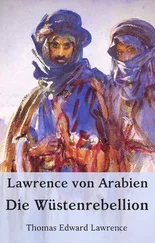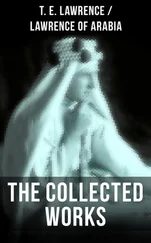“We are not surrendering,” said Pete.
“I shall be compelled to use force,” said Towers in his new blustering tone. “Much against my will.”
“Is that all you have to say?”
“Yes.”
“Then our answer is NO.”
Pete turned on her heel and started her slow histrionic walk back to the perimeter. Towers called after her: “I will give you — ” he glanced at his watch and named the time — “until then — to discuss the matter. Unless you surrender, I will attack.”
She did not turn. Towers watched her broodingly. An idea had begun to stir in his mind, to germinate. He looked at his watch. “Donner,” he called, “I have an idea. They seem better armed than I thought. If they are going to resist we may have a bit of a dust-up — but it certainly means they expect to be reinforced. Detach three cars and command the eastern cross-roads.” He watched the order conveyed and the great cars start to rumble off through the silence. Where the devil could hypothetical reinforcements come from? A faint biblical tag, something about “lift up thine eyes to the hills”, crossed his mind. The camp lay quiet, ominously quiet — the hands of his watch circled to the appointed hour. No messenger appeared with the hoped-for white flag. “All right,” said Towers, and addressed himself systematically to the task of reducing the settlement.
Meanwhile, Aaron drove at full speed along the dusty roads towards the east, his mind buzzing with anticipation and anxieties. He had chosen a point some two miles away as a hypothetical point of concentration for his army of reinforcements. He knew they would need to form and concentrate if they were to be brought to bear on the enemy in any force. By now they must already be pouring down the dusty tracks among the hills, a motley crowd of farmers, blacksmiths, women… Some would be lorry-borne, some on tractors; some armed with nothing better than pitchforks or blacksmiths’ hammers. But the call had gone out and been answered.
Civilians all, whose most distinctive feature of dress was the gentian blue pants of the field workers, and whose habits and culture spanned half the globe. The hills disgorged them slowly but certainly. Some swung in to marching tunes culled from many armies and many lands — Russian and Hebrew and Polish tunes hammered out in the distant past by armies of the line which had learned that to sing while you marched enlivened monotony. “John Brown’s Body” and “Waltzing Matilda” carried their haunting overtones of Tobruk, Rimini and Caen; even “Lili Marlene” brought her sagging melancholy to swell the chorus.
Behind him in the distance, faint plumes of smoke rose from Ras Shamir — vague inchoate movements altered the lines and contours of the plain. Within an hour or so he should have his force concentrated and on the white road. He sat among the olives, savagely chewing grass and watching them roll in. He tried to keep his mind off Judith playing her part in the defence of the settlement. In his imagination he could hear the long dry chuckle of the automatic weapons, chattering like magpies.
But now the plumes of dust along the hills swayed and swelled as they approached him; he was at last a general with an army.
28. The Kibbutz Embattled
In the annals of that winter and spring of bitter fighting — the birth-pangs of the new state — the siege and defence of Ras Shamir does not bulk very large: many a kibbutz suffered the same hardships and endured the fierce onslaught of regular Arab troops with the same bitter obstinacy of purpose. Today, the only visible reminders of that pitiless struggle are an odd statue or a memorial plaque, or the withered garlands hanging from the turrets of the “home-made tanks” which line the long winding road which leads to Jerusalem. As for Ras Shamir, the single armoured car which managed to breach the perimeter stands today a rusty burned-out wreck on the green grass by the schoolroom. As the action opened, the two leading cars lumbered like elephants into the pits which had been cleared for such an eventuality; but the third, by a swerve, managed to find solid ground and burst through the perimeter with a roar. But here a swarm of youngsters clung to it like limpets and petrol-bombed it. It swung on like a crazy animal in pain, burst through a thicket of saplings and ground to a halt below the tower. Here it was systematically finished off like an iron bull; it gushed yellow smoke and flame and hissed like a great kettle. But it had unluckily revealed by its mad charge across the wire that the minefield was a fake.
The subsequent fighting was fierce, and in many places hand-to-hand. Time existed for them not like a continuous thing, but in a series of vivid impressionistic actions — of alerts and alarms — of deafening gunfire and slaughter. They saw it, the survivors, like so many highly coloured pieces of glass from a smashed kaleidoscope; the shrill powder-monkeys feeding the gunners, the stretcher-bearers moving about purposefully, the water rushing from the pierced towers. The noise and the confusion also had their own shape, their formal proportions. Lines broken were reformed. Little incidents stuck out and were swallowed again in the general pattern. The charge of the six Herculean Poles armed with scythes and hay-forks? Would the relief never arrive…?
So the long hours wore on; drenched in their own sweat, the defenders held on. Relief, when it did come, seemed to come from nowhere. The Arab infantry suddenly sagged at one corner like a curtain bellying out in the wind, faltered and then reformed with a new orientation. Afar off, now, the kibbutzniks caught sight of the little blue dots moving across their field of vision like a sea: the relief from their mountain comrades had arrived.
Aaron had been delayed by an encounter with the three diverted armoured cars at the eastern cross-roads; but his new army was not disposed to be trifled with by mere steel and rubber. It included veterans from many campaigns who knew all that is to be known about the blind side of tanks; they stalked the cars and captured them, turning them back upon their tracks. They formed a welcome and effective addition to the rescuing force, as it swept down the dusty roads. But Aaron was anxious now, for there had been a long delay: already evening was casting its first shadows under the rosy cliffs and escarpments. Nor was there time for any fine tactical manoeuvring. He could do little more than order a general engagement. It was, indeed, hardly an army but a ragged mob of angry and unshaven men which rushed down on Towers’ flank with a shock that echoed like thunder. But Towers himself was dead, as was Donner; in fact, few of the British officers remained to rally and reform Daud’s forces. Under the impact of the Jews, the lines sagged, wavered and began to give ground slowly but surely.
The defenders watched them as if in a dream — a strange incoherent dream of a retreat and a victory; in the hubbub their hoarse cheers, coming from throats so parched, could hardly be heard.
As the shadows of darkness began to fall, they saw the clouds of battle move inexorably towards the pass, towards the border which Aaron had made it his intention to seal fast. Ras Shamir was safe now, but its defenders could hardly form a coherent thought, so dazed were they with fatigue. An enormous emptiness beset them and hunger was all they were capable of registering.
The defence of Ras Shamir was only one of the defensive actions to take place during those tragic and heroic days when the existence of the new Israel hung in the balance. Nor in the official history will it ever figure among so many other glorious stories of the time. But if Ras Shamir was held, it was symbolic of the way in which the whole country, with its scattered and defenceless network of kibbutzim, turned each and all of them into strong points to stem the Arab advance. From Tiberius to Gaza the same story was enacted, though in each case the original nationality of the defenders might vary from British to Indian, from American to Greek. Beside such epoch-making names as Jerusalem, Haifa, Gaza, Beersheba, Ras Shamir will certainly find its small and modest place. The laconic official communiqué issued after the battle read as follows:
Читать дальше












